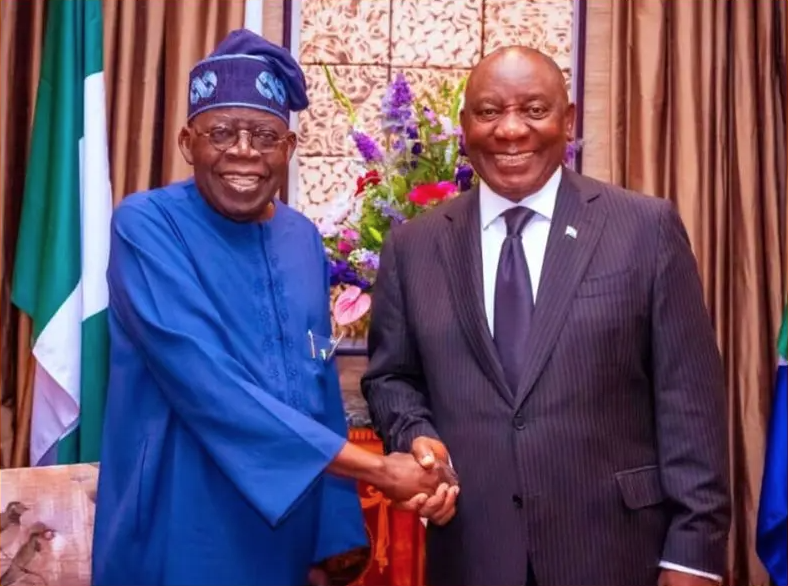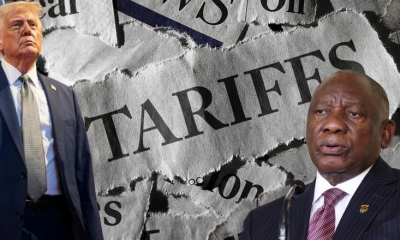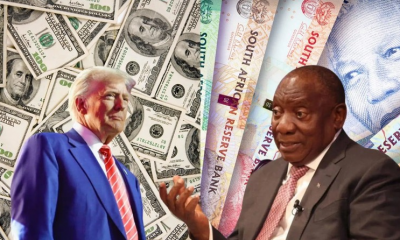411
South Africa Eases Visa Rules for Nigerians to Boost Trade and Tourism

At the 11th South Africa-Nigeria Bi-National Commission in Cape Town, President Cyril Ramaphosa announced significant visa reforms to strengthen economic and diplomatic relations between the two nations. The changes include granting qualifying Nigerian businesspeople five-year multiple entry visas and enabling tourists to apply for visas without submitting passports—a move aimed at simplifying travel and trade between the two economic powerhouses.
A Historic Shift in Visa Policy
South Africa has long been criticized for its rigid visa regulations, especially for African countries. A 2024 report by the Centre for Human Rights highlighted high rejection rates for African nationals applying for South African visas. By addressing these challenges, the government seeks to foster a more inclusive and cooperative regional framework.
Ramaphosa emphasized the reforms as part of broader efforts to encourage Nigerian products in South African markets, deepen trade, and expand tourism. He noted that “the strategic positioning of both countries presents enormous opportunities for collaboration.”
Public Reaction: Optimism and Skepticism
While the announcement garnered praise for fostering pan-African unity, it also sparked concerns among South Africans.
One user on X (formerly Twitter), @JonathernThom, remarked:
South Africa’s President Ramaphosa: We want to see Nigerian products on the shelves of South African shops… Nigerian tourists can now apply for a visa without submitting a passport.”
MXM pic.twitter.com/4PLI7lJrb4
— Jonathern Thom
(@JonathernThom) December 3, 2024
Conversely, @Oracle5152 shared concerns about immigration control:
At this rate, the plan of ANC is to destroy South Africa. How does strengthening our relationship with Nigeria secure comfortable future of South Africans?
— Oracle (@Oracle5152) December 3, 2024
Another tweet from @MadawaMan_ encapsulated the mixed sentiments:
Trade between Nigeria and South Africa is significant, with Nigeria being South Africa’s largest trading partner in Africa. Crude oil from Nigeria constitutes a major portion of this trade. With recent agreements focusing on easing visa restrictions for Nigerian businesspeople…
— People (@MadawaMan_) December 4, 2024
Economic Opportunities and Bilateral Trade
Nigeria is South Africa’s largest trading partner in West Africa, with strong ties in sectors like energy, manufacturing, and retail. Ramaphosa expressed a desire to see more Nigerian products on South African shelves, enhancing the bilateral trade framework.
These initiatives aim to build on Nigeria and South Africa’s shared leadership roles in Africa. Nigerian President Bola Ahmed Tinubu highlighted this during the commission, stating:
“As two of Africa’s leading economies, Nigeria and South Africa must work together to ensure shared prosperity for our countries and Africa as a whole.”
South Africa’s visa policies have previously strained relations with African nations. In the first year of Ramaphosa’s presidency, over 7,000 Nigerians had their visa applications rejected. Critics noted that these policies often favor Western countries over African nations, complicating intra-continental collaboration.
The new policies aim to reverse this trend, encouraging trade and tourism while addressing concerns about illegal immigration and security.
The Bi-National Commission underscored the importance of deeper collaboration between the two nations. Tinubu and Ramaphosa reaffirmed their commitment to advancing economic growth, security, and mutual respect.
The South African government has also pledged to balance economic ambitions with public concerns, aiming to ensure the new visa policies benefit citizens and businesses alike.
As Ramaphosa stated:
“This is about building bridges, not walls. By fostering economic partnerships, we secure a prosperous future for our nations and Africa.”
The visa reforms signal a turning point in South Africa-Nigeria relations, balancing economic opportunities with socio-political realities. While challenges remain, the strengthened ties between these two African giants could pave the way for a more unified and prosperous continent.
Follow Joburg ETC on Facebook, Twitter and Instagram
For more News in Johannesburg, visit joburgetc.com





















